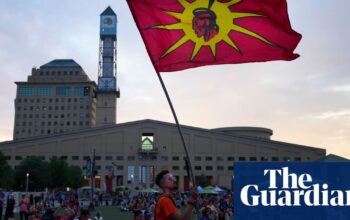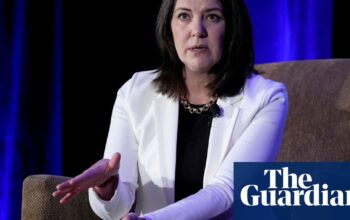
A summit in Ghana this week has sparked a global effort to demand compensation for the impacts of slavery. The African Union and Caribbean countries have joined forces to create a unified approach in urging European nations to take responsibility and make amends for their past atrocities.
The alliance between the African Union, consisting of 55 members, and the Caribbean Community (Caricom), consisting of 20 countries, seeks to increase the pressure on countries with a history of slavery to address the issue of reparations.
The delegates also declared the creation of a worldwide fund located in Africa with the goal of speeding up the campaign.
A preliminary announcement shared at the conclusion of the four-day meeting did not detail the specifics of the reparations, but disclosed that the African Union will investigate “legal remedies” and collaborate with the United Nations to evaluate whether enslavement of Africans constituted grave breaches of human rights at the time. The finalized edition of this statement, known as the Accra proclamation, is anticipated to be published this weekend.
At the start of the conference, Nana Akufo-Addo, the president of Ghana, stated that the time of slavery hindered our advancement in various aspects such as economics, culture, and mentality. He mentioned countless tales of families being separated, emphasizing that the consequences of such tragedies cannot be measured but must be acknowledged.
The speaker believes that the European countries involved in the slave trade owe a formal apology to the entire continent of Africa. They also acknowledge that no amount of money can fully repair the harm caused by the transatlantic slave trade and its aftermath. This issue must be addressed and cannot be overlooked any longer.
Delegates from the African Union journeyed to Barbados in July to commence discussions on collaborating with Caribbean nations.
According to Carla Barnett, the secretary general of Caricom, we are currently at a crucial turning point in the global push for reparations. She emphasized the need for a unified voice in advocating for reparations.
The British Foreign Office stated that one of their officials attended the conference “as a typical diplomatic engagement”, however, the UK government is still unwilling to accept the idea of reparations.
Earlier this year, Labour MP Bell Ribeiro-Addy asked if UK prime minister Rishi Sunak would apologize for the country’s involvement in slavery and colonialism and commit to reparatory justice. Sunak responded with a “no”, stating that while having an inclusive and tolerant society is important, delving into our history is not the best approach and is not a priority for the government.
David Cameron, the current foreign secretary, shares his approach. During his term as prime minister in 2015, he visited Jamaica and recognized that slavery is detestable in every form. However, he expressed his desire for us to progress from this painful history.
Progress has been achieved in other regions. The president of Germany, Frank-Walter Steinmeier, recently admitted feeling “shame” for the colonial atrocities committed by his country in Tanzania. In 2021, Germany officially recognized and took responsibility for committing genocide during its occupation of Namibia. They also announced providing financial assistance of over £940m. Additionally, last year the prime minister of the Netherlands, Mark Rutte, formally apologized on behalf of the Dutch state for their involvement in the slave trade, acknowledging it as a crime against humanity.
During a recent visit to Nairobi, King Charles recognized the “appalling and unacceptable acts of violence” that were inflicted upon Kenyans during their fight for independence. However, he did not issue a formal apology.
The delegates expressed their optimism about the increasing acceptance of the responsibility to provide reparations. They mentioned specific examples such as Glasgow University’s commitment to pay £20m to acknowledge its involvement in the transatlantic slave trade, the Church of England’s pledge of £100m to address their past wrongdoings related to investing in the transportation of enslaved people, and the formation of the Heirs of Slavery movement by descendants of wealthy enslavers in Britain, who also support the call for reparatory justice.
Ribeiro-Addy, who was present at the conference in Ghana and also leads a cross-party parliamentary group on reparations, stated that it was noteworthy to see the African Union collaborating with Caricom. She emphasized that this is a major advancement and sends a strong message that this issue can no longer be disregarded.
David Comissiong, the ambassador from Barbados to Caricom and also the deputy chair of their national taskforce on reparations, expressed that the recent events were a significant and meaningful moment in history. He also stated that people are feeling motivated by the extensive efforts put into building a worldwide movement for reparations.
On Friday, representatives toured Elmina Castle, a significant hub for European slave trade in Ghana where enslaved individuals were kept before being transported on ships to the Caribbean, Brazil, and North America. Approximately 12 million Africans were forcibly taken by European countries during the 16th to 19th centuries and forced into slavery on plantations.
The 10-point plan proposed by Caricom for reparative justice includes a formal apology, cancellation of debt, and investment in health and education systems by former colonial powers. A recent report by the University of the West Indies, called the Brattle report, revealed that the UK owes a staggering £18.8 trillion in compensation to Caribbean nations for centuries of exploitation.
Source: theguardian.com


